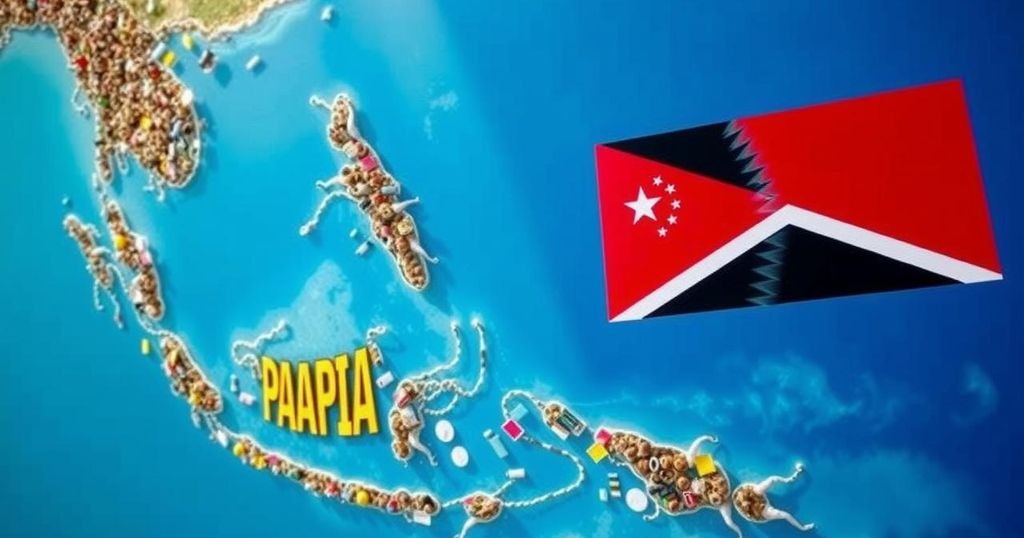Papua New Guinea’s Bold Boycott of UN Climate Summit Highlights Global Frustration
Papua New Guinea has chosen to boycott the upcoming UN climate summit, criticizing it as a “waste of time” filled with empty promises from major polluters. Foreign Minister Justin Tkatchenko expressed disappointment in the lack of tangible results from previous negotiations, stating that the country would pursue bilateral agreements instead. The move reflects a broader disillusionment among small nations concerning ineffective global discussions on climate action.
Papua New Guinea has announced its intention to boycott next month’s UN climate summit, labeling the global discussions on climate change as a “waste of time” filled with empty promises from major polluting nations. The country’s Foreign Minister, Justin Tkatchenko, articulated that attending the UN climate talks is futile if they yield no substantial outcomes. He criticized the empty rhetoric surrounding the conferences, emphasizing that while major emitters make grand commitments to assist with climate relief, the reality is that such funds have little impact and often end up benefiting consultants instead of making a real difference. The situation is alarming as Papua New Guinea, which possesses one of the largest rainforests globally, is increasingly threatened by the adverse effects of climate change. Tkatchenko expressed frustration with the ongoing COP negotiations, stating that they have not translated into actionable results over the past three years. His comments underscore the growing disappointment among smaller nations regarding the effectiveness of the COP process, which, despite its historical significance in establishing the Paris Agreement, has faced scrutiny for inadequate climate action. Moreover, Tkatchenko indicated that instead of participating in the COP discussions, Papua New Guinea intends to form direct climate agreements with countries such as Singapore, which may provide a more productive avenue for addressing their climate challenges. This decision has garnered support from neighboring Pacific countries that feel similarly marginalized in international discussions about climate justice and adaptation funding. The rejection of participation in the COP negotiations highlights not only the dissatisfaction of Papua New Guinea but also illustrates a broader disillusionment shared among vulnerable states amid perceived inaction from major polluters. The island nation aims to advocate for itself and other Pacific island nations that are exposed to existential threats due to rising sea levels and climate change. As the climate discourse continues to evolve, the stakes are incredibly high, particularly for nations lacking the resources to combat climate change independently. It becomes imperative for global efforts to be directed toward equitable solutions that genuinely address the urgent needs of affected communities.
The backdrop to Papua New Guinea’s boycott of the upcoming UN climate summit lies in a growing disenchantment with the effectiveness of international climate negotiations. The COP summits, intended to foster cooperation and significant commitments to reduce greenhouse gas emissions, have often fallen short of delivering concrete results, particularly for smaller and developing nations that bear the brunt of climate impacts. Developing countries like Papua New Guinea emphasize that they are shouldering the consequences of pollution largely caused by industrialized nations, urging a re-evaluation of international strategies related to climate action and funds for adaptation and resilience.
In conclusion, Papua New Guinea’s decision to boycott the UN climate summit is a significant statement regarding the frustrations many smaller nations feel towards the perceived ineffectiveness of international climate negotiations. By seeking bilateral agreements instead, Papua New Guinea is advocating for a more direct approach that prioritizes productive relationships with like-minded nations. This boycott could serve as a catalyst for change in how climate diplomacy addresses the urgent needs of vulnerable countries facing the dire consequences of climate change.
Original Source: www.independent.co.ug




Post Comment